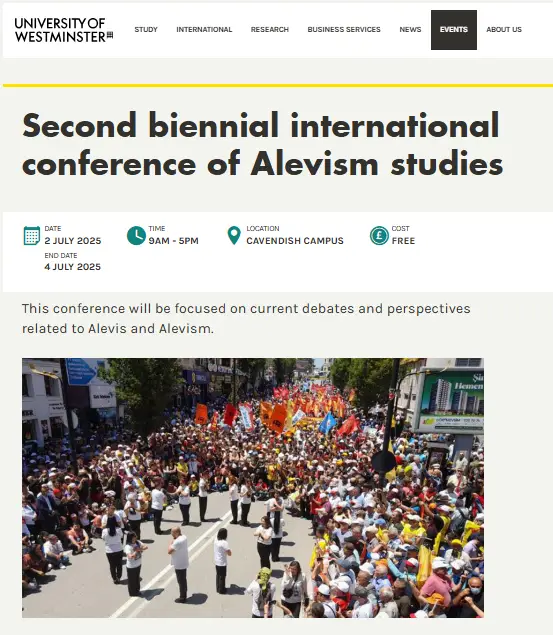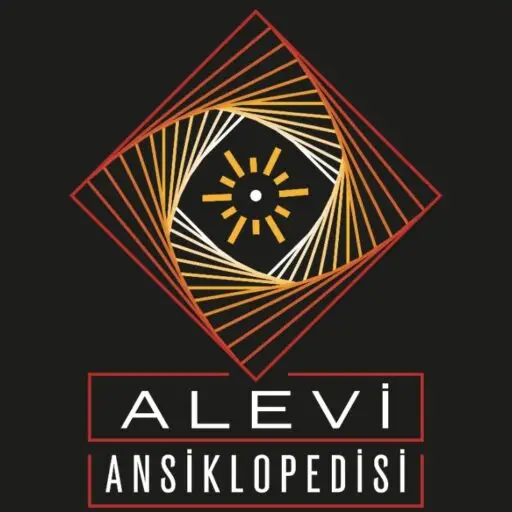2–4 July 2025 | University of Westminster, London
From 2 to 4 July 2025, the University of Westminster hosted the Second Biennial International Conference of Alevism Studies (BICAS) at its Cavendish Campus in London. Organised by Dr Ümit Çetin, Dr Celia Jenkins, and Tufan Bozkurt from the University of Westminster, along with Dr Kumru Berfin Emre from the University of the Arts London, the three-day conference brought together an international group of scholars and researchers committed to advancing the academic study of Alevism across disciplinary and geographical boundaries.
Opening Remarks and Institutional Support
The conference opened with welcome remarks by Dr Ümit Çetin, who paid tribute to the victims of the Sivas Massacre and drew attention to the ongoing violence against Alevis (Alawites) in Syria. He was followed by Professor Peter Bonfield, Vice-Chancellor and President of the University of Westminster, who emphasised the importance of knowledge exchange between the university and the wider community. Bonfield highlighted the growing prominence of Alevism Studies as an academic field and praised the university’s support for Dr Çetin and Dr Celia Jenkins, who have played a leading role in promoting Alevism education in British schools. He also commended the Alevi Encyclopedia as a valuable online platform for knowledge creation and dissemination. The opening session continued with a video message from Professor Dibyesh Anand, Deputy Vice-Chancellor (Global Engagement and Employability), who underscored the university’s commitment to social justice, its support for marginalised communities, and the importance of embedding such research within the principles of equality, diversity, and inclusion.
By hosting the Second Biennial International Conference of Alevism Studies (BICAS), the University of Westminster has established itself as a home for Alevism research. Thanks to the dedicated efforts of Dr Ümit Çetin and Dr Celia Jenkins, the university is increasingly recognised as a hub for Alevi scholars and researchers.
Broad and Interdisciplinary Scope of Presentations
The conference featured a rich and diverse range of presentations examining Alevism from historical, cultural, political, theological, and transnational perspectives. Panels addressed topics including:
- Historical injustices and collective memory
- Alevi beliefs and rituals
- The position of Alevism within secularism, liberalism, and state-religion relations
- Gender dynamics, women’s activism and leadership, and queer politics
- Diasporic experiences, Alevi youth, and Alevism on digital platforms
- Alevi cultural heritage through manuscripts, archives, and oral histories
- Sociopolitical and demographic transformations of Alevi communities in Turkey and Europe
This interdisciplinary agenda provided a platform for both early-career and established scholars to share empirical research and theoretical reflections on Alevism, both in Turkey and across its diasporas.
The Alevi Encyclopedia: Presentation and Collaborative Workshop
A key theme of the conference was the introduction and discussion of the Alevi Encyclopedia—an international initiative to develop a comprehensive, multilingual, and academically grounded resource on Alevism. On the first day, a dedicated presentation launched the online encyclopedia and introduced its aims, editorial principles, and scope, generating significant interest and laying the foundation for further collaboration.
The final day featured a workshop titled “The Alevi Encyclopedia Project and the Future of Alevism Studies”, which brought all conference participants into a collective, reflective, and forward-looking dialogue. The session fostered critical engagement with the encyclopedia: scholars posed questions about editorial processes, identified thematic gaps, suggested potential entries, and offered recommendations to enhance scholarly inclusivity and participation. There was also a strong interest in developing mechanisms for peer review, long-term contributions, and transnational collaboration.
A Growing Collaboration
The conference marked the beginning of a long-term collaboration between the University of Westminster and the Alevi Encyclopedia. This partnership reflects a shared commitment to fostering inclusive, rigorous, and engaged scholarship on Alevism and signals an important step toward embedding Alevism Studies more firmly within global academic networks.
With its lively discussions, thoughtful contributions, and collaborative spirit, the Second Biennial International Conference of Alevism Studies reaffirmed the vitality of this expanding field. It not only built on the momentum of the inaugural conference but also opened new pathways for scholarly and community-based engagement in the years ahead.


